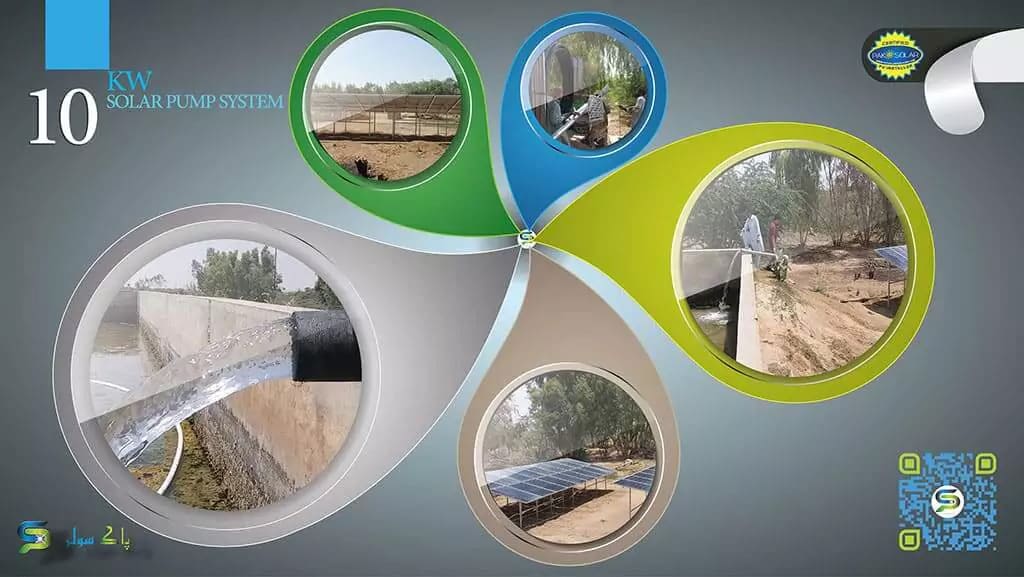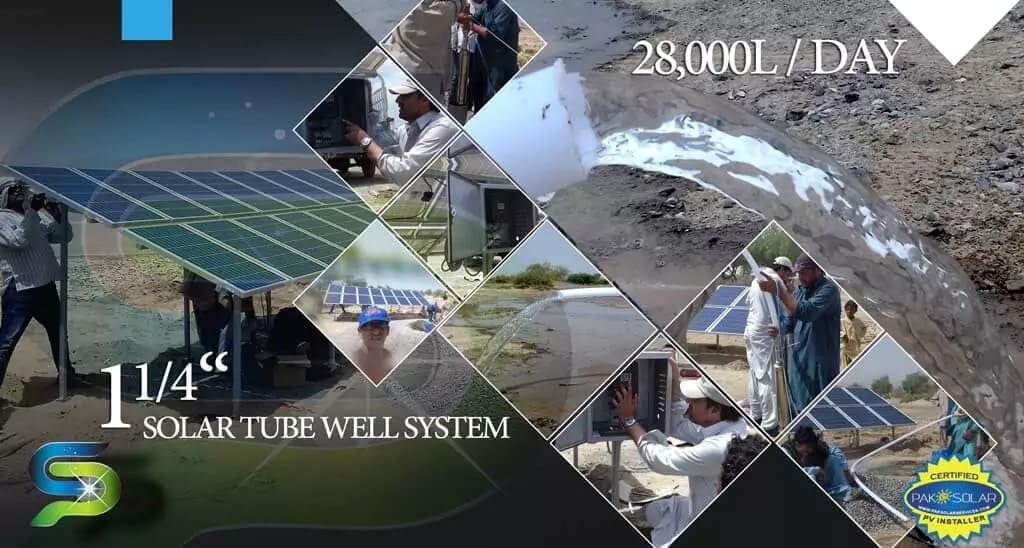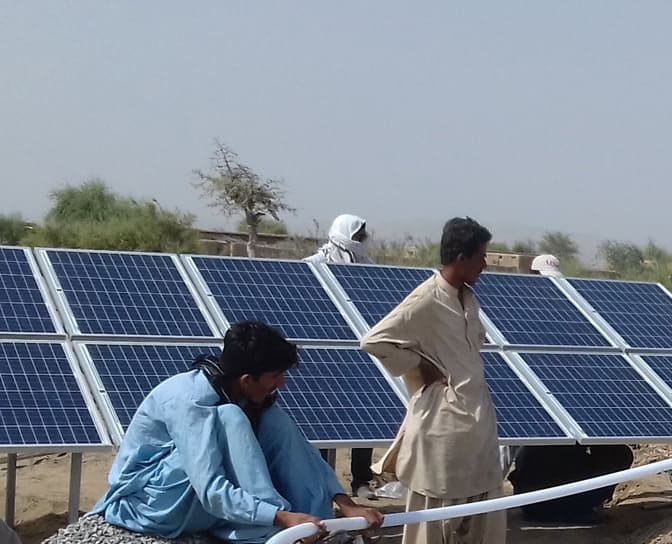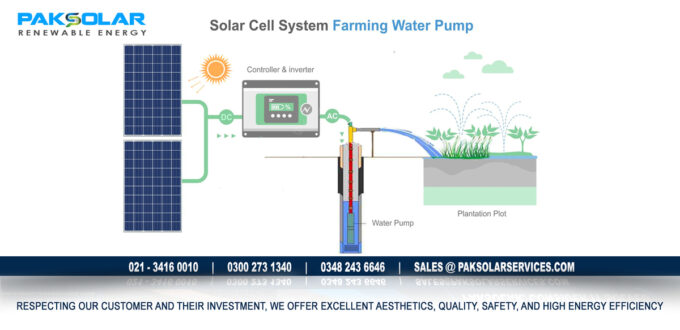A Sustainable Investment for a Greener Future
Introduction
Solar pumps have emerged as a sustainable and eco-friendly alternative to traditional pumps in the agricultural sector in Pakistan. With the country’s growing energy demands and the need for efficient irrigation systems, solar pumps offer a viable solution. However, the cost of solar pumps for agriculture in Pakistan is influenced by various factors, including equipment, installation, capacity, and government incentives. In this article, we will explore these factors and shed light on why investing in solar pumps is not just a financial decision but also a commitment to building a greener and more resilient agricultural sector in Pakistan.
1. Equipment Costs
The cost of solar pumps for agriculture in Pakistan primarily depends on the equipment used. Solar pumps consist of solar panels, inverters, batteries, and controllers. The quality and capacity of these components play a significant role in determining the overall cost. High-quality equipment may have a higher initial cost but often proves to be more durable and efficient in the long run, resulting in greater savings and benefits for farmers.

2. Installation Expenses
Another factor influencing the cost of solar pumps is the installation process. The complexity of installation, the size of the system, and the location of the agricultural land all contribute to the overall expenses. Proper installation is crucial to ensure optimal performance and longevity of the solar pump system. Therefore, it is advisable to hire experienced professionals who can install the system efficiently, reducing the risk of any future complications.
3. Capacity Considerations
The capacity of a solar pump is determined by the water requirements of the agricultural land. Farms with larger areas or higher water demands may require pumps with greater capacity, which can affect the cost. It is essential to assess the specific needs of the farm and choose a solar pump with an appropriate capacity to avoid unnecessary expenses. Consulting experts in the field can provide valuable guidance in determining the right capacity for efficient irrigation.
4. Government Incentives
The Pakistani government has recognized the importance of renewable energy and offers various incentives to promote the adoption of solar pumps in agriculture. These incentives include subsidies, tax credits, and loan facilities, which help reduce the financial burden on farmers. By availing these incentives, farmers can significantly lower the cost of installing solar pumps and accelerate the transition to sustainable irrigation systems.
5. Long-Term Benefits
While the initial investment in solar pumps may be higher compared to traditional pumps, it is crucial to consider the long-term benefits they offer. Solar pumps rely on abundant sunlight, a free and renewable resource, which eliminates the need for costly fossil fuels. This, in turn, reduces operational costs and dependence on fluctuating fuel prices. Over time, the savings generated by solar pumps can offset the initial investment, making them a financially viable option for farmers.
6. Reliable Water Supply
One of the significant advantages of solar pumps is their ability to provide a reliable water supply for irrigation. Traditional pumps are often subject to power outages, fuel shortages, and maintenance issues. Solar pumps, on the other hand, operate using solar energy, ensuring a continuous water supply even in remote areas with limited grid access. This reliability enhances agricultural productivity and reduces the risk of crop loss due to water scarcity.

7. Environmental Benefits
Solar pumps contribute to a cleaner and healthier environment. By harnessing the power of the sun, they produce clean energy without emitting greenhouse gases or air pollutants. This eco-friendly approach helps mitigate climate change and reduces the carbon footprint of the agricultural sector. Additionally, solar pumps reduce noise pollution compared to diesel or electric pumps, creating a more peaceful and sustainable farming environment.
8. Enhanced Agricultural Practices
Investing in solar pumps enables farmers in Pakistan to enhance their agricultural practices significantly. With a reliable water supply, farmers can implement efficient irrigation
systems such as drip irrigation or sprinkler systems, which ensure optimal water distribution to crops. These advanced techniques promote efficient water usage, minimize water wastage, and improve crop yields. Solar pumps also offer the flexibility to irrigate fields at different times of the day, allowing for better crop management and growth. By adopting these enhanced agricultural practices, farmers can maximize their productivity and profitability.
9. Increased Crop Yields
Solar pumps play a vital role in increasing crop yields and overall agricultural output. With a consistent and reliable water supply, farmers can provide crops with the necessary irrigation they need for optimal growth. Adequate irrigation ensures that crops receive the right amount of water at the right time, leading to healthier plants, improved nutrient absorption, and higher yields. The controlled water supply also helps in preventing crop diseases and reducing water stress, resulting in better quality produce.

10. Paving the Way for a Sustainable Future
Embracing solar pumps in the agricultural sector is not just about the immediate benefits; it is a commitment to building a greener and more sustainable future. By transitioning to renewable energy sources like solar power, farmers contribute to reducing the reliance on fossil fuels and decreasing greenhouse gas emissions. This sustainable approach aligns with global efforts to combat climate change and promotes environmental stewardship. Furthermore, embracing solar pumps sets an example for other sectors and encourages the adoption of clean energy solutions across the country.
Conclusion
In conclusion, the cost of solar pumps for agriculture in Pakistan is influenced by factors such as equipment quality, installation expenses, capacity requirements, and government incentives. While the initial investment may be higher, the long-term benefits and savings offered by solar pumps make them an attractive option for farmers. Solar pumps reduce operational costs, provide a reliable water supply, and contribute to a cleaner environment. By embracing solar pumps, farmers can enhance their agricultural practices, improve crop yields, and pave the way for a sustainable future. Investing in solar pumps is not only a financial decision but also a commitment to building a greener and more resilient agricultural sector in Pakistan. It’s time for farmers to embrace this sustainable and cost-effective solution to secure a prosperous future for themselves and the environment.
- How to Monetize Your Facebook Page: A Comprehensive Guide - July 22, 2023
- Avoiding Plagiarism: Your Ticket to Originality and Academic Success! - July 21, 2023
- Chat-GPT: Your Friendly AI Pal for Awesome Conversations! - July 20, 2023

